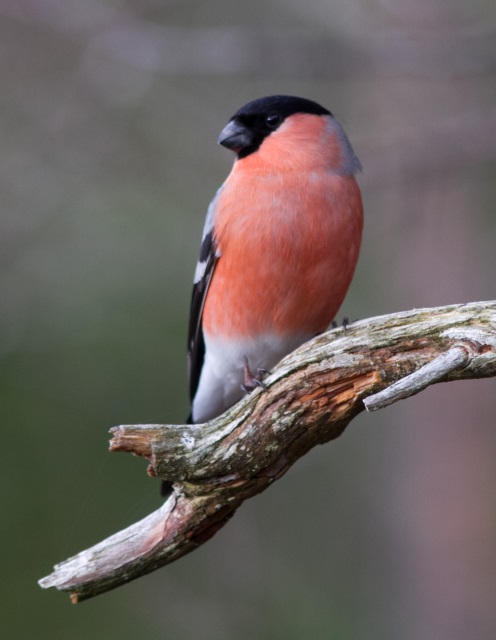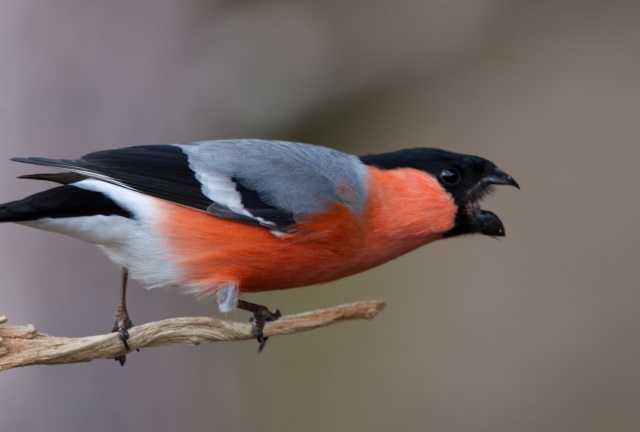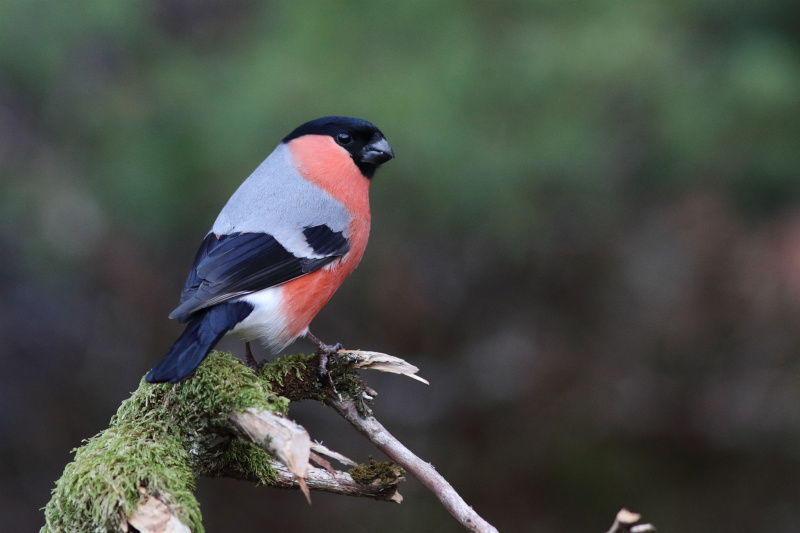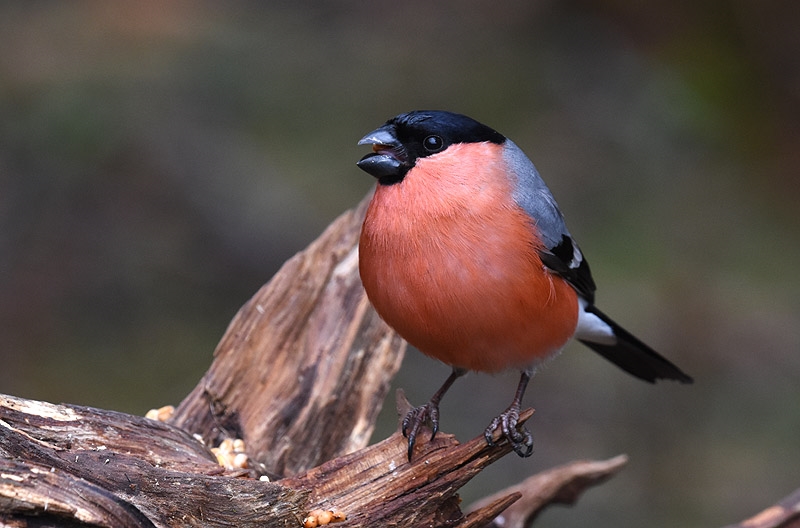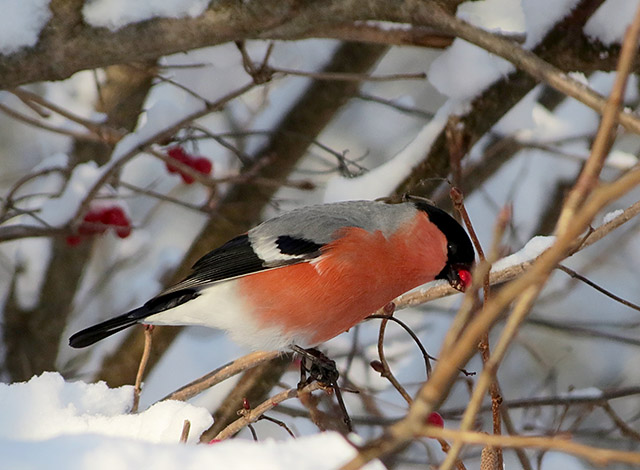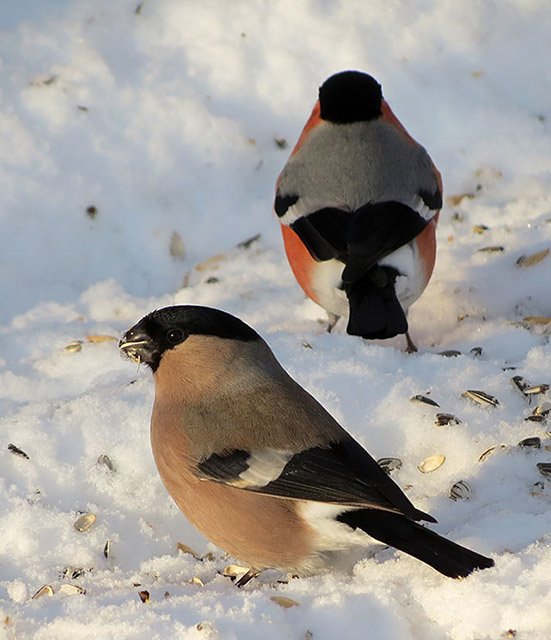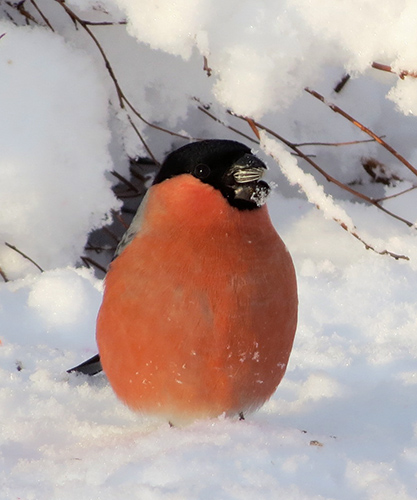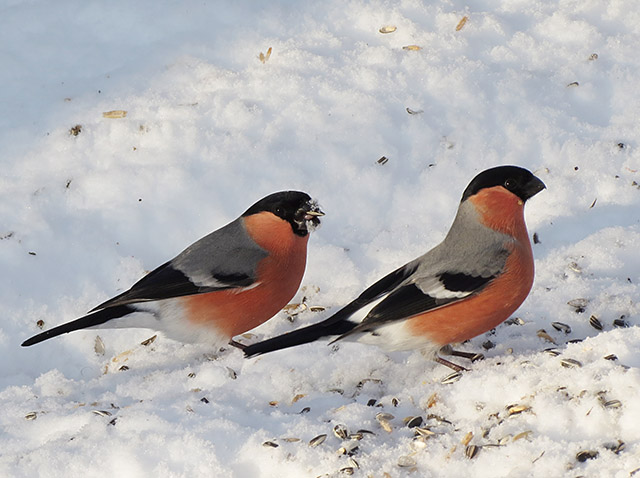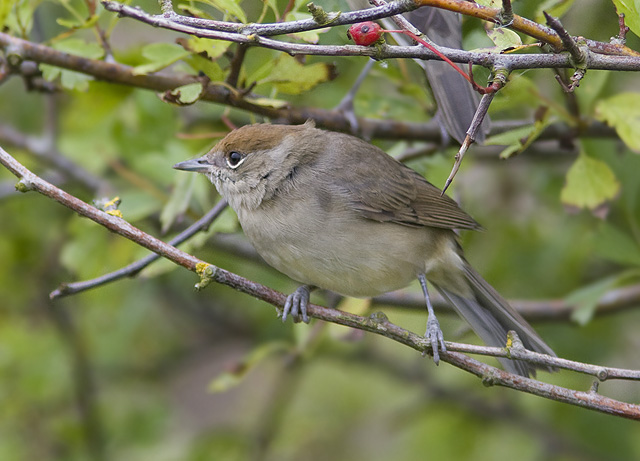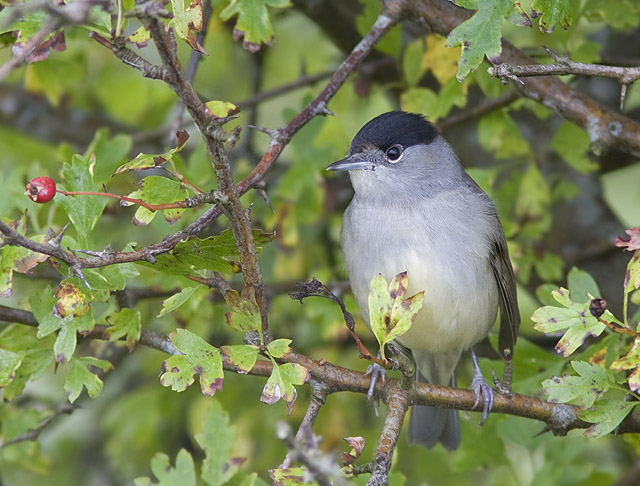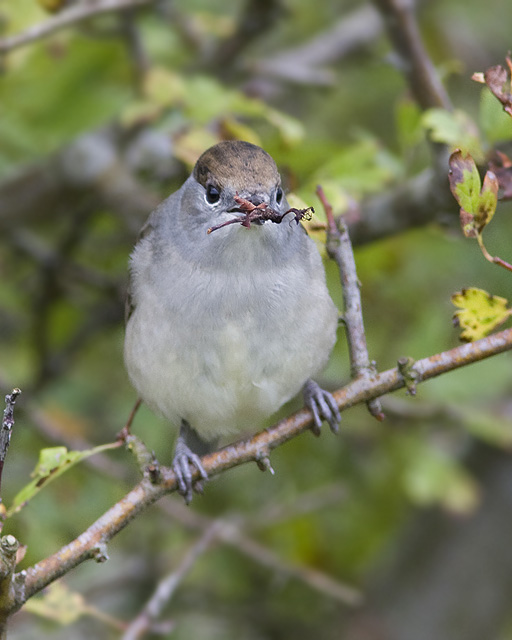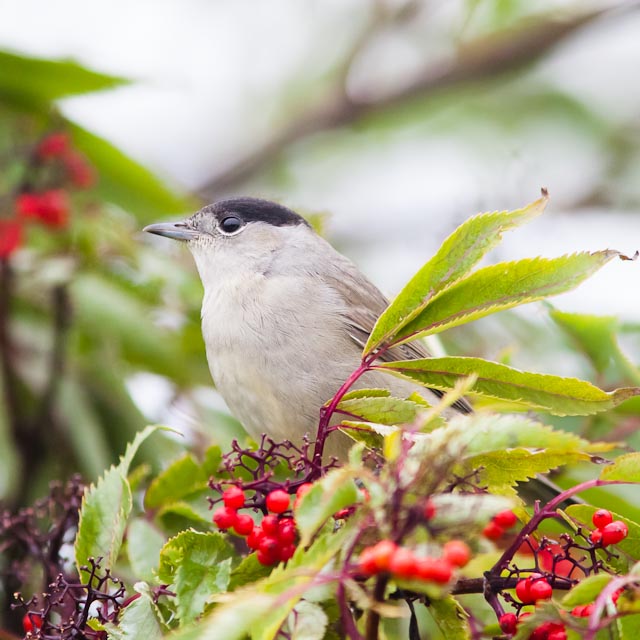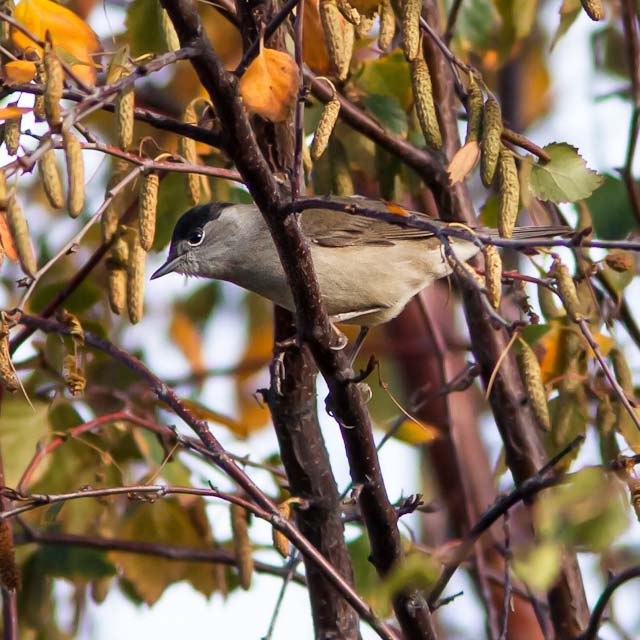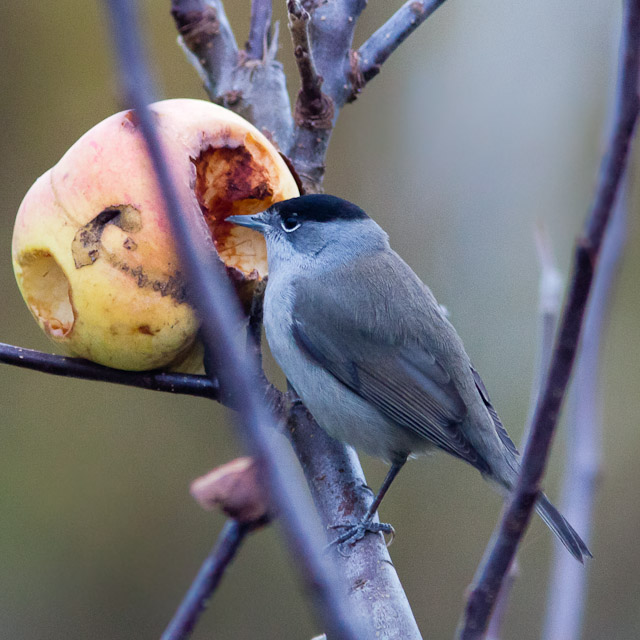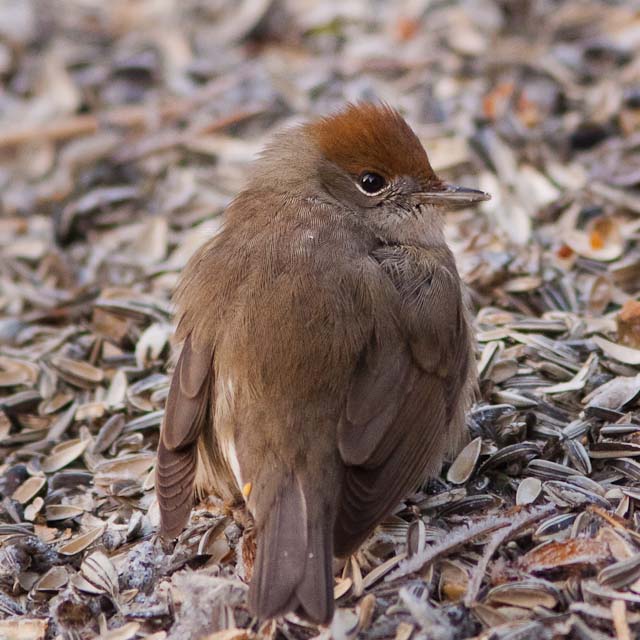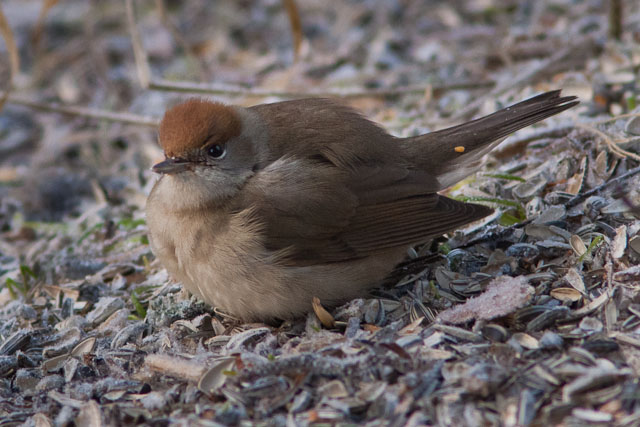Bullfinch (Pyrrhula pyrrhula)
Blackcap (Sylvia atricapilla)
Pinkish red (male) or greyish brown (female) underparts, and slate grey upperparts. Bill short and deep. Hood, tail, wings, bill and base of bill shiny black. Pure white rump and vent, together with white wing-bars prominent in flight. Wings and tail relatively long. Juveniles lacks black hood. Flight strongly undulated. Not so hurried as other finches when foraging.
Sound:Contact call a soft, full-bodied, descending, pure whistle; "peeuu". Song a quiet, modest mix of contact call and various chirping sounds, with peculiar harmonics.
Contact call, song:
Distribution:
Xeno-canto: map
Ecology:Birdlife ecology
Links:
Observation.org Latest observations
Image search Flickr NB! May give other species
CCLarge and robust warbler with plain plumage, except for the characteristic cap (black in males, rufous in females and juveniles). Upperparts greyish brown and underparts pale grey. Vent white. No white in tail, as opposed to all other black-capped Sylvias in the region. Easily confused with Garden Warbler if the cap is not seen.
Sound:Song pleasing, varied and loud. Sometimes very similar to Garden Warbler. A typical phrase starts with soft, staccato chattering and mimicry, which after a few seconds changes to a much louder, pure and resonant stream of notes for about 3-5 seconds. No fixed motif, but may end phrases with recurring notes. Often deviates from the characteristic type of song, and identification from song alone may be impossible. May sing first part of song for extended periods without ever reaching the characteristic ending. Alarm call a hard "check", similar to Lesser White-throat. Sometimes with an additional hoarse and nasal "cherrrr".
Alarm call, song:
Distribution:
Wikipedia: map (se also Xeno-canto below)
Ecology:Birdlife ecology
Links:
Observation.org Latest observations
Image search Flickr NB! May give other species
CC
 English
English Albanian
Albanian
 Armenian
Armenian
 Bulgarian
Bulgarian
 Catalan
Catalan
 Croatian
Croatian
 Czech
Czech
 Danish
Danish
 Dutch
Dutch
 Finnish
Finnish
 French
French
 Georgian
Georgian
 German
German
 Greek
Greek
 Hungarian
Hungarian
 Italian
Italian
 Latvian
Latvian
 Lithuanian
Lithuanian
 Macedonian
Macedonian
 Norwegian
Norwegian
 Polish
Polish
 Portuguese
Portuguese
 Romanian
Romanian
 Russian
Russian
 Sami : Lule sami
Sami : Lule sami
 Sami : North sami
Sami : North sami
 Sami : South sami
Sami : South sami
 Scientific names
Scientific names
 Serbian
Serbian
 Spanish
Spanish
 Swedish
Swedish
 Ukrainian
Ukrainian


